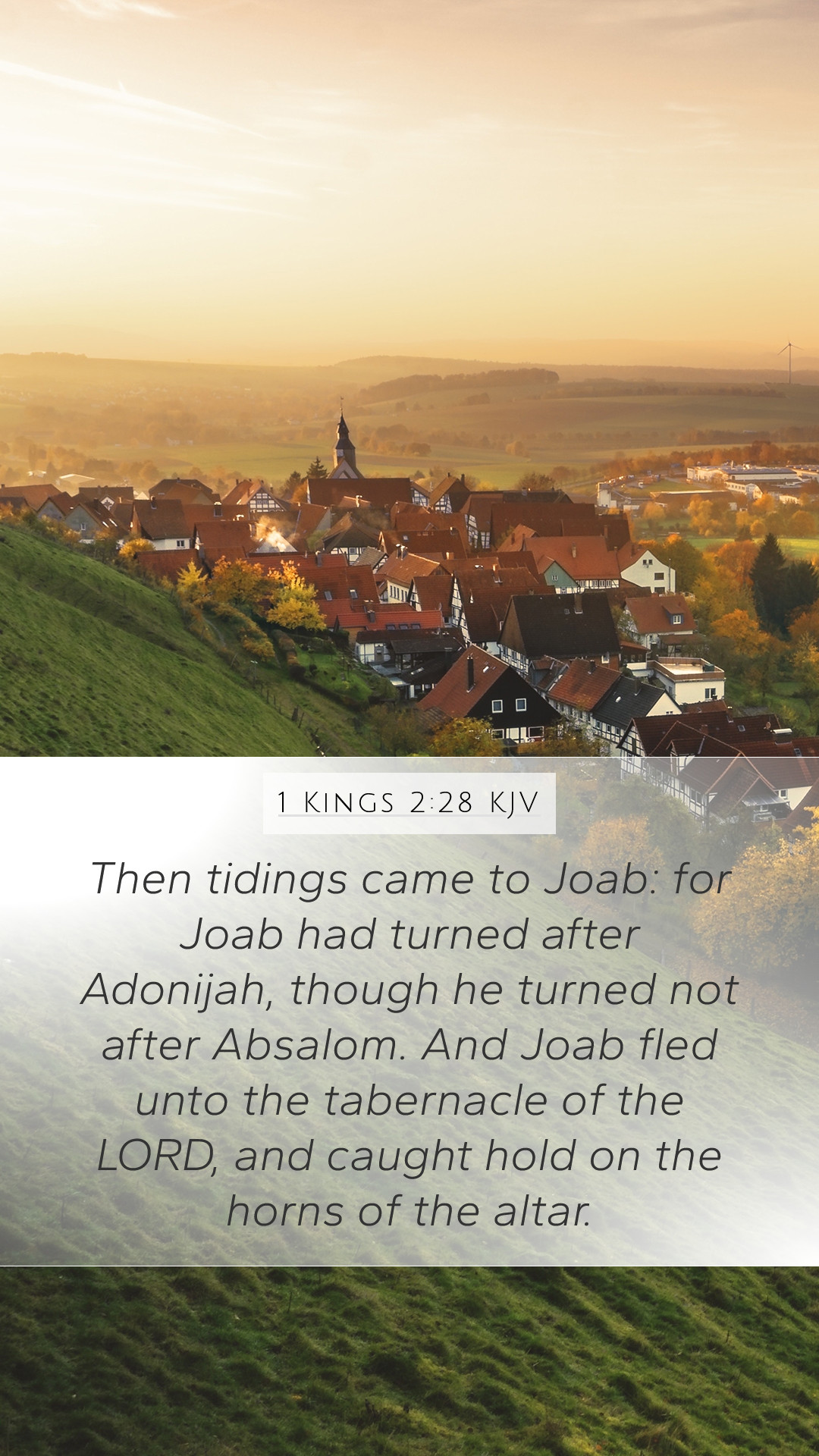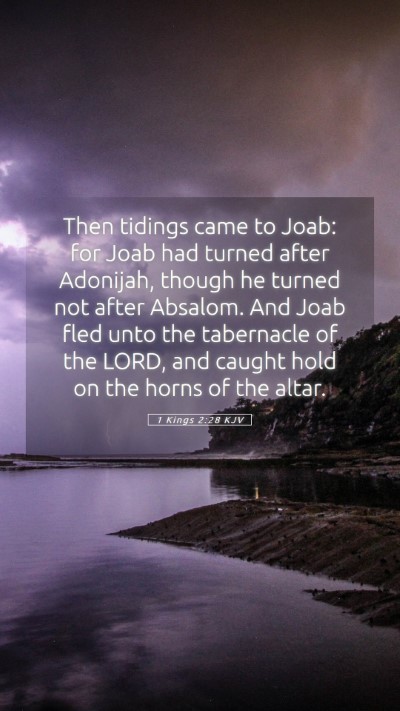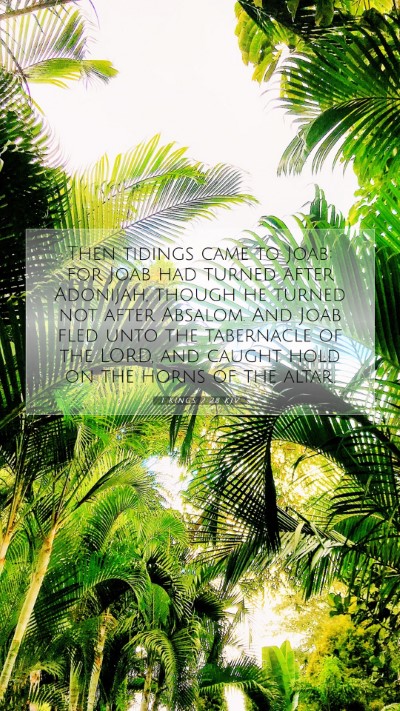Bible Verse Meaning: 1 Kings 2:28
Verse: "Then news came to Joab; for Joab had turned after Adonijah, though he had not turned after Absalom. And Joab fled to the tabernacle of the Lord and took hold on the horns of the altar."
Summary of 1 Kings 2:28
This verse recounts the actions of Joab, a military leader during King David's reign, who, upon hearing of the shift in political power to Adonijah, sought refuge at the altar of the Lord. His actions reflect a desperate attempt to escape the consequences of his choices regarding loyalty and betrayal.
Commentary Insights
The following insights combine interpretations from public domain commentaries by Matthew Henry, Albert Barnes, and Adam Clarke:
- Historical Context:
Joab had served David loyally, but he had also acted treacherously, especially in the matter of Absalom and the support of Adonijah. This creates a backdrop of tension and moral complexity.
- Joab's Loyalty and Betrayal:
Henry highlights that Joab's choice to support Adonijah reveals his shifting loyalties. Joab’s previous backing of Absalom indicates a pattern of self-interest rather than true allegiance, leading to his ultimate downfall.
- Seeking Refuge:
With his fate uncertain, Joab seeks sanctuary at the altar, which symbolizes his acknowledgment of guilt and a desperate plea for mercy. This action reveals the spiritual dimension of his circumstances.
- Symbolism of the Altar:
Barnes points out that the horns of the altar represented a place of safety, traditionally associated with divine mercy. Joab's choice signifies his awareness of the consequences of his actions and his attempt to evade justice through a religious act.
- The Nature of Justice:
Clarke emphasizes the theme of justice and its inevitability. Joab’s flight to the altar demonstrates the struggle between human governance and divine law, highlighting that one cannot escape the consequences of one's actions even within sacred spaces.
- Divine Sovereignty:
The episode illustrates the sovereignty of God in establishing authority. Joab's attempt to cling to the altar underscores his awareness that despite his political maneuvering, ultimate power rests with God.
- Reflection of Human Nature:
This narrative serves as a reflection of human tendencies toward manipulation and self-preservation at the cost of integrity. Joab’s actions prompt readers to consider their own choices and allegiances.
Applications and Lessons
For contemporary readers, this passage serves as a cautionary tale regarding the nature of loyalty, integrity, and the pursuit of mercy. It encourages self-reflection on one's actions and the importance of seeking true repentance rather than merely seeking refuge from consequences.
Related Bible Cross References
- 2 Samuel 14:6: Discusses Joab's involvement in the conflict regarding Absalom.
- 1 Kings 2:34: Relates to Joab's eventual execution by Solomon, underscoring themes of justice.
- Exodus 21:14: Mentions asylum at the altar, providing context for Joab's actions.
Conclusion
1 Kings 2:28 invites deep Bible verse analysis and encourages readers to explore themes of loyalty, sanctuary, and divine justice. The commentary and lessons drawn from this passage enrich our Bible study insights and deepen our understanding of Scripture.


